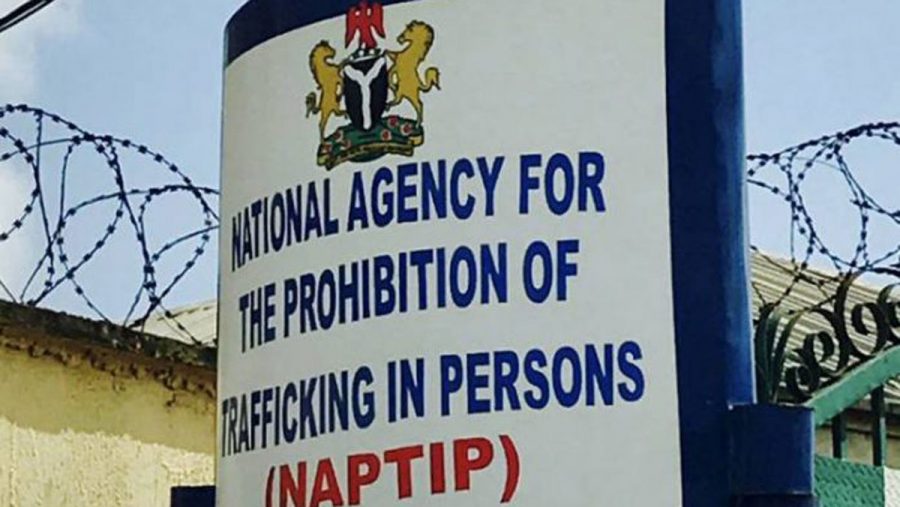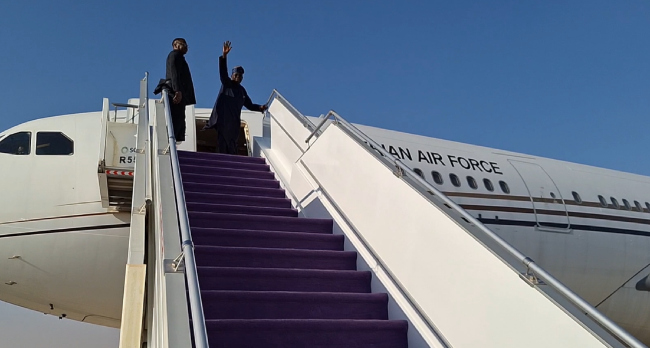The National Agency for the Prohibition of Trafficking in Persons (NAPTIP) on Monday in Abuja presented to its stakeholders the National Action Plan (NAP) on human trafficking for the year 2022-2026.
The Minister of Humanitarian Affairs, Disasters management and Social Development, Hajia Sadiya Umar Farouq, during the presentation stated that the document was expected to foster greater collaboration among stakeholders.
Represented by Mr Charles Anielu, a Director in the ministry, Farouq said that the document would bring efficiency in the fight against human trafficking in Nigeria and set yearly bench mark for stakeholders on the implementation of activities.
The minister noted that the policy document could not have come at a better time than now when the country was facing a number of social, humanitarian and developmental issues.
“My ministry has risen to the challenges of delivering on its core mandate of developing humanitarian policies and providing effective coordination of national and international humanitarian interventions.
“The ministry has risen to ensure strategic disaster mitigation preparedness and response and managing the formulation and implementation of fair focused social inclusion and protection programmes in Nigeria.
“In a bid to effectively coordinate the wide mandate of the ministry, we developed L.I.F.E Cycle – Lead an Inclusive and Innovative Future-thinking Ecosystem,“ she said.
The minister said it was an operational coordination initiative which aligned with the activities of all the agencies under the ministry, in collaboration with relevant stakeholders.
“This initiative finds expression in NAP on human trafficking in Nigeria (2022 – 2026), which is a coordination framework for counter-trafficking interventions.
“Since the approval of the document by the Federal Executive Council in February and its public presentation at the National Stakeholders Consultative Forum (NSCF) on human trafficking in April, the document was yet to be fully mainstreamed,” Farouq said.
She said that it was imperative to convene the meeting as a platform to engage heads of Ministries, Department and Agencies (MDAs) and other relevant organisations to understand their roles in the implementation of the document.
Earlier in her address of welcome, NAPTIP Director-General, Dr Fatima Waziri-Azi, stated that human trafficking had remained a source of threat to international, national, and human security and had become the greatest contemporary challenges.
She said that the Nigerian government had over the years realised the strategic roles of all segments of the society in combatting the social ill, hence the need why government through NAPTIP was approaching the menace in various dimensions.
Waziri-Azi stated that after the establishment of NAPTIP, the agency had continuously developed and expanded structures to deepen the involvement of relevant actors in stemming the tide of human trafficking in Nigeria.
“You would recall that in 2009, NAPTIP developed a Four-Year National Action Plan (NAP) on Trafficking in Persons (2009-2012) that became a collaborative framework that set the benchmarks for interventions by all stakeholders.
“The implementation of the first edition of `NAP On Human Trafficking (2009-2012)` provided the much needed framework for a coordinated response to human trafficking in Nigeria among the stakeholders.
“The first edition led to numerous achievements recorded by the agency in the succeeding years. Some of these achievements were the landmark upgrading of Nigeria to Tier One status for three consecutive years in the US, 2009 – 2012,“ she said.
Waziri-Azi said that upon the expiration of the timeframe of the NAP 2009 – 2012, there were a number of unsuccessful attempts to develop the next Action Plan until 2017 when NAPTIP and stakeholders came together.
“This first activity heralded the commencement of the development of the new NAP (2022 – 2026) which we are presenting today,” she said.
According to her, the report of the appraisal and the findings from the baseline assessment of the trafficking situation in Nigeria were presented to the stakeholders at the first workshop held between Nov. 23 and Nov. 25, 2020.
Waziri-Azi commended some relevant partners such as the UN Office on Drug and Crimes (UNODC), the International Organisation for Migration (IOM) which had been supporting NAPTIP on the fight against the menace.





